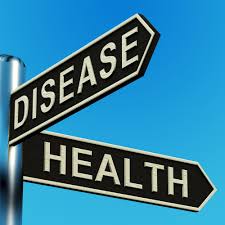Recent considerations of out-of-pocket health care costs have not included the significant and unavoidable extra costs for people living in rural and remote areas of travel and accommodation.
 But there is some good news – most recently in the discussion at a Senate Estimates hearing on Wednesday, 10 April 2019 – the day before the Federal Election was called. That good news is reprinted below.
But there is some good news – most recently in the discussion at a Senate Estimates hearing on Wednesday, 10 April 2019 – the day before the Federal Election was called. That good news is reprinted below.
Neither the Report of the Ministerial Advisory Committee on Out-of-Pocket Costs (November 2018) nor the media commentaries about it included any reference to the words ‘rural’ or ‘transport’. The Committee comprised representatives of nine specialist medical Colleges plus six other people, but no representative of the specific interests of rural and remote people.
The costs of travel and accommodation involved in accessing health services must be squarely on the agenda, and a dataset which does not include these is very deficient. And it is not just the health sector where it’s an issue. A recent news item on the ABC referred to a Riverland study showing that clients of the NDIS also fail to meet appointments because of travel difficulties and/or costs.
Policy remediation could be through a variety of means:
- having the Commonwealth re-assume responsibility for patients’ travel and accommodation assistance schemes;
- having private health insurance providers offer additional products designed specifically to appeal to people in rural and remote areas and to meet their circumstances – including their need to travel and the possibility of significant lost income; and
- redesigning the system of incentives and penalties relating to families’ decisions about whether or not to take out private health insurance; (the current system of health insurance rebates is another transfer payment from rural to urban populations).
On the first of these, Treasury and Finance would be unlikely to support action to open up another demand-driven program to the Commonwealth. But if one is serious about equivalent access to health services for people everywhere, this has to be considered.
In the meantime, here is some good news about getting the matter firmly onto the political agenda. It might be like turning the Titanic around but if, as a result, the iceberg is avoided it will surely be worth the effort.
From Senate Estimates, Wednesday 10 April 2019
Senator WATT: In brief, what were the other main findings [of the Ministerial Advisory Committee on out-of-pocket health care costs]?
Professor Brendan Murphy, Chief Medical Officer: One of the striking findings was the interstate variation. Pretty much nobody in Adelaide has an out-of-pocket cost for surgery. Just about everyone in Sydney and Canberra does, and some of them are very, very high. One of the clear messages was that people who see a surgeon, or a radiation oncology provider, without knowing in advance what they’re going to be charged, are informed of the bill in practice—they feel they can’t extricate themselves from that relationship and get another opinion. So, there was a clear driver in that committee to promote transparency so that people could find out what someone was charging before they actually made the initial appointment.
Senator WATT: Were there any findings around the costs for people living in regional and remote areas?
Prof. Murphy: Again at the level of anecdote, the particular issue there was the additional travel and accommodation costs, because often they would have to travel to have their surgery or their radiotherapy or even sometimes their chemotherapy. That was seen to them as an additional burden of significance.
Senator WATT: When you are getting those figures about the extreme end of $20,000, the $1,000 up to $5,000, were you including travel and accommodation costs there?
Prof. Murphy: Some of the anecdotes reported that as well, but mostly not.

